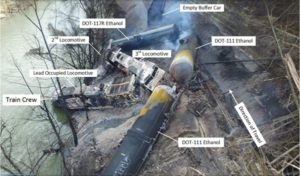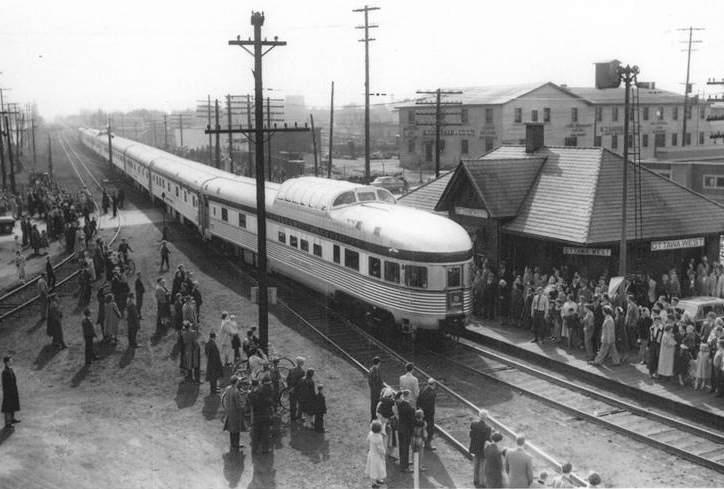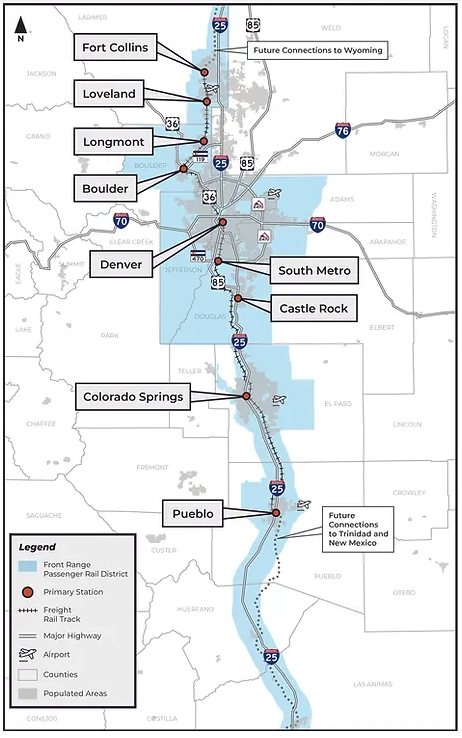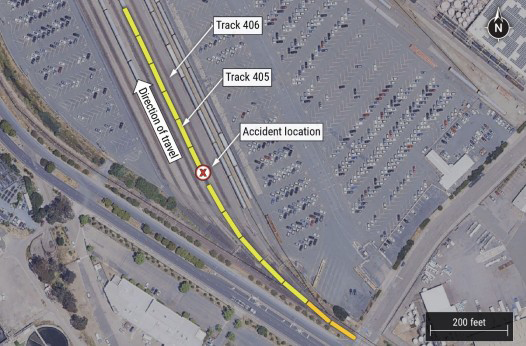WASHINGTON — The National Transportation Safety Board is recommending increased use of buffer cars in trains with DOT-111 tank cars carrying hazardous materials as a result of investigations into two derailments. The recommendation issued Tuesday recommends at least five non-placarded cars be placed between locomotives or occupied equipment and those carrying hazardous materials, regardless of train length. The recommendation reflects investigations of derailments in Draffin, Ky., and Fort Worth, Texas, which resulted in breached tank cars and hazardous-material fires.

In its safety recommendation report, the NTSB has concluded that both accidents could have been less severe if DOT-111 tank cars in each train had been placed in locations where they were less likely to derail or sustain accident damage.
“This is not the first time NTSB has issued recommendations regarding the use of buffer cars to reduce the risks of hazardous materials release to train crews,” Robert Hall, NTSB Director of Railroad, Pipeline and Hazardous Materials, said in a press release. “We believe that it is imperative that these recommendations be implemented to prevent the potential for a catastrophic event.
The CSX derailment in Draffin, Ky., on Feb. 13, 2020, saw three locomotives, one buffer car, and four tank cars derail on a hillside, with two DOT-111 tank cars releasing about 38,400 gallons of denatured ethanol, which caught fire along with diesel fuel released from the locomotive. Two crew members were trapped on the lead locomotive by the resulting fire, eventually escaping via the adjacent Russell Fork River, where they were rescued by fire department boat.
No injuries occurred in the April 24, 2019, derailment of a Union Pacific train in Fort Worth, which saw 25 cars derail from a 96-car train of denatured ethanol; three breached tank cars, including one DOT-111 car, released 65,270 gallons of ethanol; three horses in a barn were killed and three injured in the resulting fire.













